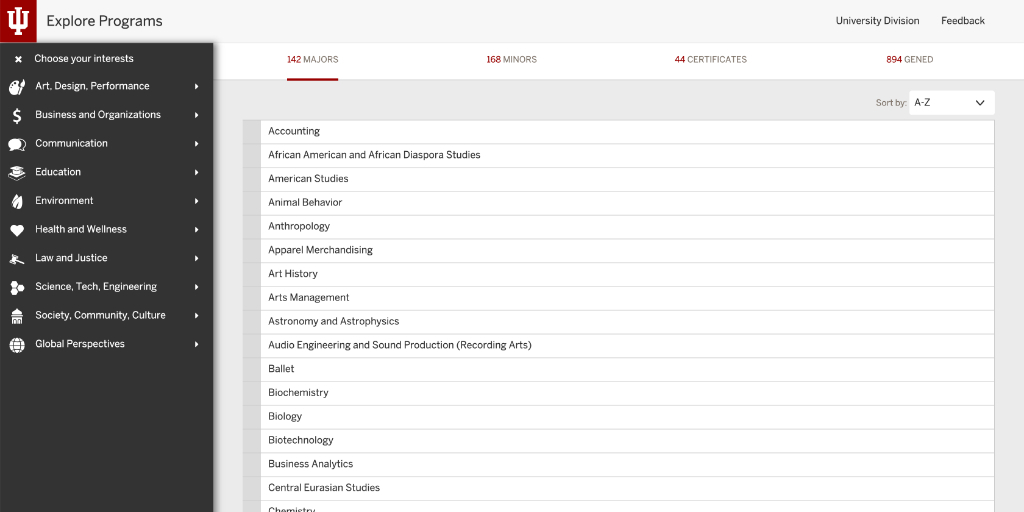Music Education Major Related Careers
The following careers are directly or indirectly related to the study of this major. Click the job title to learn more about it. To search for more career options, visit OnetOnline.org.
Bachelor of Music Education students can choose from four different areas of emphasis: choral, jazz band, general, band or orchestra. Depending on their instrument or voice, students can choose from a broad range of performance opportunities offered by the School of Music that includes more than 30 orchestras, bands, choral ensembles, and specialty ensembles. Undergraduate students develop as music teachers and professionals through interactions with renowned university professors and expert public school music teachers, as well as through involvement in state and national music education associations
Admission is very competitive in all programs.You must apply to the Jacobs School of Music and can arrange for a fall audition for spring semester admission or a spring audition for fall admission. For more information concerning admission and the application, contact the Music Admissions Office, East Studio Building, JS 100, (812) 855-7998. You may also want to check out the Applications Procedures page.
To find out more about the majors offered in the music school, see the Degree Requirements page on the Jacob School of Music website.
For career information, visit the Entrepreneurship and Career Development Office.
Use the following guidelines to begin to think about your options for your first enrollment, in preparation for a fall audition.
Bloomington General Education Curriculum Common Ground courses (the Foundations requirements of English Composition and Mathematical Modeling are strongly encouraged.)
Ensemble: Ensembles are recommended, but not required for non-admitted students. Ensembles meet for one or two periods daily, typically between 2:30 p.m. and 6 p.m. Most ensembles require an audition. Assignments will be posted during the first week of classes.
Performance Study: Select the MUS-Z 110, Non-Music Major Performance Elective, corresponding to your interest.
Music Theory: Music theory course selections should match your background. Take the Music Fundamentals Online (MFO) assessment.
Piano: MUS-P 110, Beginning Piano Class 1. If you wish to investigate more advanced classes, take the secondary piano placement examination. The schedule is available from the secondary piano coordinator, secpiano@indiana.edu.
‘PLAN B’ courses: Alternative academic plans in case you are not admitted to the School.
Talk with a coach about your questions related to this major, your interests, and your career goals.
Schedule an appointment
University Division's Explore Programs tool is the place to go for academic information about any IUB major, minor, or certificate.
Open in Explore ProgramsThe following careers are directly or indirectly related to the study of this major. Click the job title to learn more about it. To search for more career options, visit OnetOnline.org.
John Holland developed a theoretical framework consisting of six general themes that describe broad areas interest relating to self and the working world. If you are interested in discovering your career interests, visit our Learn more about yourself page to learn about the Strong Interest Inventory.
This major consists of the following themes:
Below is a sampling of skills related to this major mapped from the Skillscan Driver Assessment. The SkillScan assessment provides a simple 3-step process to help you learn about your strengths and weaknesses, the skills you enjoy and want to use in a career and those skills needing development. Consider taking the SkillScan assessment to better understand your skills as it relates to majors at IU.
Our unique IU Career Guides offers the A-Zs of each field’s preferred educational backgrounds, as well as employment opportunities and insider tips, industry-related interview questions, and a lot more. Below are related career guides for this major.